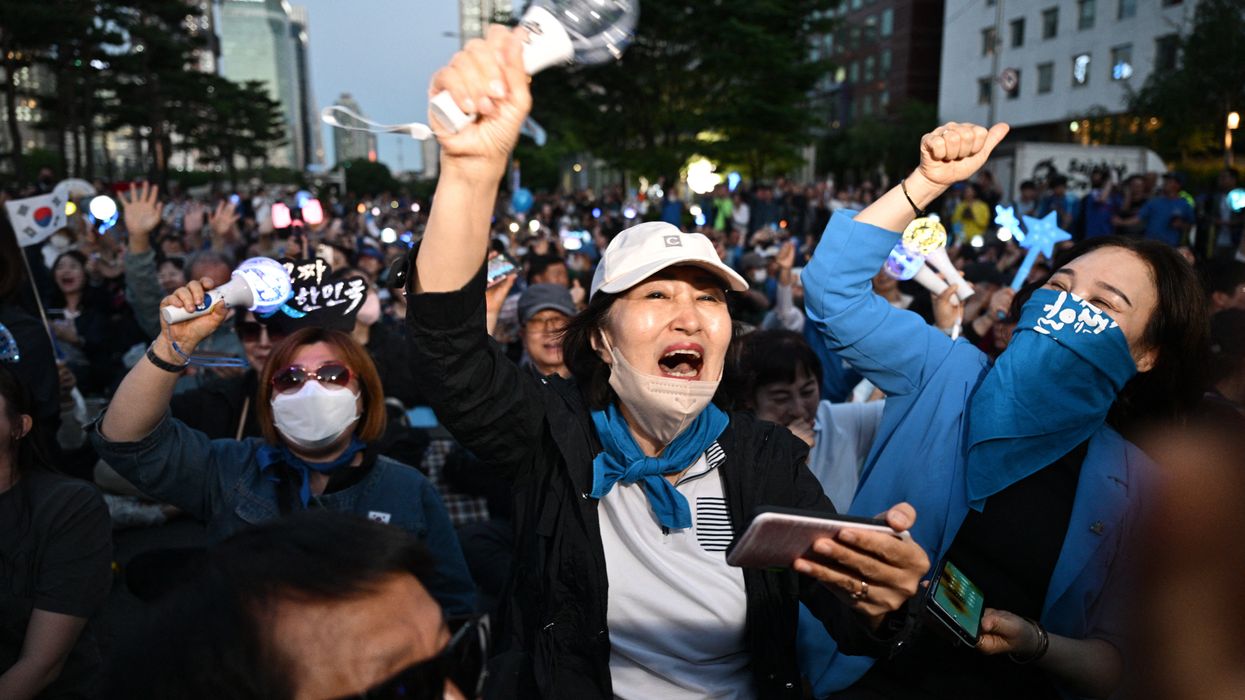US Navy SEALs 'Slaughtered' Civilians During Botched 2019 North Korea Mission
Congress was reportedly never informed about the covert attempt by the first Trump administration to plant a listening device in North Korea during high-stakes nuclear negotiations.
US Navy SEALs shot dead a number of civilians during a botched secret mission to plant a listening device inside North Korea during tense nuclear negotiations between the first Trump administration and the government of Kim Jong Un in 2019, The New York Times reported Friday.
Dave Philipps and Matthew Cole reported for the Times that President Donald Trump personally approved the covert operation, which was tasked to SEAL Team 6's Red Squadron, the same unit that assassinated Osama bin Laden. Although the elite sailors rehearsed the nighttime mission for months, things fell apart when a small fishing boat appeared out of the dark in what the SEALs thought was a deserted area.
"Flashlights from the bow swept over the water. Fearing that they had been spotted, the SEALs opened fire," wrote Philipps and Cole. "Within seconds, everyone on the North Korean boat was dead. The SEALs retreated into the sea without planting the listening device."
Officials familiar with the mission told the Times that the SEALs then pulled two or three bodies from the boat, punctured the victims' lungs with knives so their bodies would sink, and threw the dead fishers into the sea.
It didn’t “leave them dead.” Navy SEALs slaughtered three innocent people.
[image or embed]
— Daniel Malmer (@malmer.com) September 5, 2025 at 6:10 AM
According to the Times:
The 2019 operation has never been publicly acknowledged, or even hinted at, by the United States or North Korea. The details remain classified and are being reported here for the first time. The Trump administration did not notify key members of Congress who oversee intelligence operations, before or after the mission. The lack of notification may have violated the law...
The aborted SEAL mission prompted a series of military reviews during Mr. Trump's first term. They found that the killing of civilians was justified under the rules of engagement, and that the mission was undone by a collision of unfortunate occurrences that could not have been foreseen or avoided. The findings were classified.
It is not known whether or how much North Korea's government knew about the mission. While Trump's erstwhile untried tactic of direct negotiations with Kim averted escalation of the 2018-19 standoff, the high-profile summits between the two leaders yielded no substantial progress toward denuclearization or a peace treaty.
The US and North Korea are technically still at war. Between 1950-53 US forces killed an estimated 20% of all North Koreans—around 1.9 million men, women, and children—according to Gen. Curtis "Bombs Away" LeMay, who served as strategic air commander during the war after overseeing World War II firebombing raids on Japanese cities that killed hundreds of thousands of civilians.


